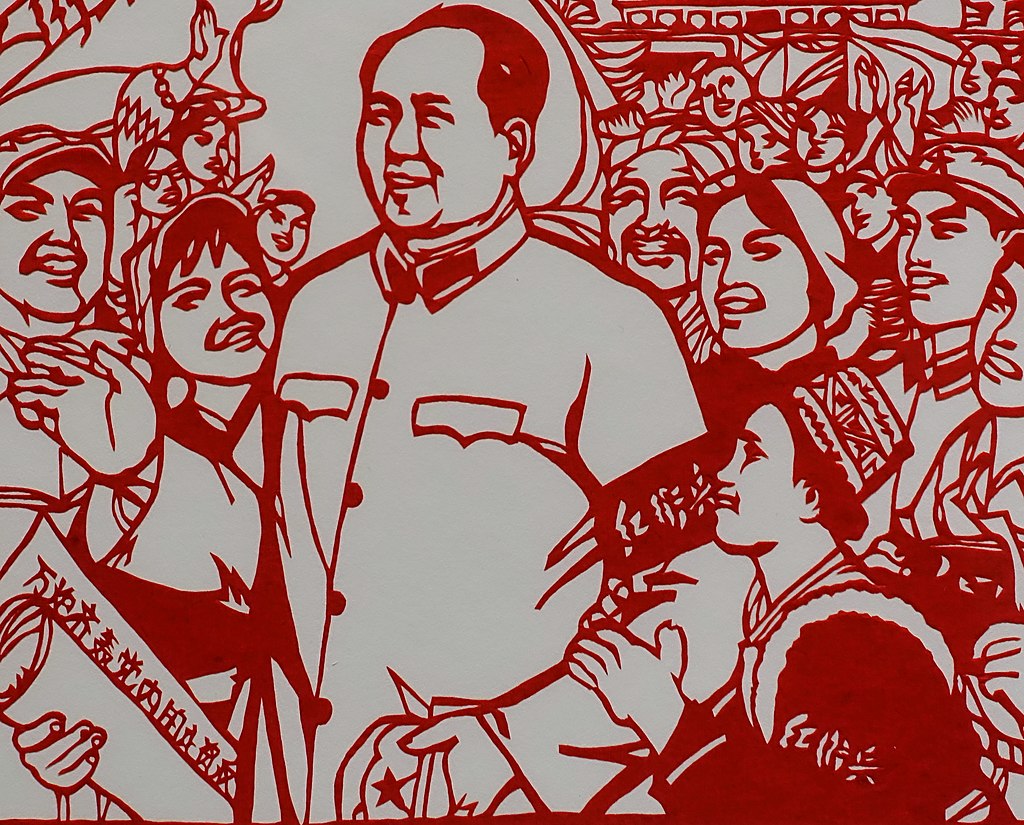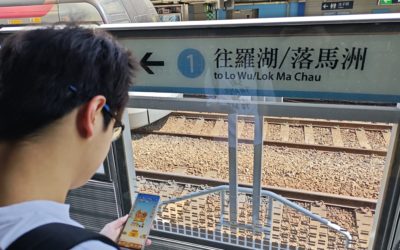Essay
My Two Grandfathers with Completely Different Experiences in the Cultural Revolution
By Qishu Leng
May 2020

From my childhood, I’ve been curious about the Cultural Revolution and was confused why my two grandfathers with totally different experiences are both grateful to Chairman Mao.
In May 1966, Mao Zedong launched the Cultural Revolution, during which he identified groups that he considered enemies of the revolution: former landlords, rich farmers, counter-revolutionaries, bad-influencers and rightists. Conversely, members of the Communist Party, former poor farmers and low-class workers, were categorized as good people. That created a status society.
By that standard, my father’s father, Leng Yuchun, from a rich farmer’s family, was a bad person, though his farmlands had already been confiscated by Communist Party in 1951. While Zhang Jiyan, my mother’s father, from a poor farmer’s family, was identified as a good person.
That led to their totally different lives during the next 10-year-turmoil in China.
Richard Curt Kraus wrote in his book “The Cultural Revolution: A Very Short Introduction” that Mao started the revolution because he “felt shut out by more conservative comrades, and fought to reimpose his influence.” Kraus divided the movement into two stages: radical mass mobilization from 1966 to 1968 and the reestablishment of party control from 1969 to 1976. My two grandfathers’ lives was greatly affected during the first stage.
The Red Guards, a mass student-led group, was formed to support Mao in 1966. They inflicted bodily harm on people viewed as enemies of the revolution and destroyed ancient artifacts with personal support from Mao. As reported by the People’s Daily, the eight receptions Chairman Mao gave to Red Guards in Beijing largely boosted their involvement in the Cultural Revolution.
My grandfather Zhang was a Red Guard.
“Only well-behaved students with good political identity were permitted to go to Beijing as Red Guards,” Zhang said.
He was studying in Shangluo Normal School in Shangluo, Shaanxi at that time. Together with seven other students, he traveled from Shangluo to Beijing in the winter of 1966.
It was free to take trains and have meals in restaurants during that time, he said. “As long as you could squeeze into trains, you could go everywhere in China.”
After a whole day’s train journey, Zhang got to Tiananmen Square. All the students cheered, “Chairman Mao!” and “Long live Chairman Mao!” holding “Quotations from Chairman Mao Tse-tung,” also known as “the little red book.”
My grandfather preserved his photo taken in Tiananmen Sqaure when he was wearing a warm military coat. He said that the coat was provided by the government to better show the image of China.
“The winter in Beijing was freezing. The government didn’t want to see us shivering without any warm clothes in the records,” he said. When they left Beijing, all the warm coats had to be returned.
Zhang was arranged to stay in a workers’ club and could only eat cookies at first. Then he was arranged to stay in the Shijingshan middle school dormitory where he got pork and vegetables.
“Everyday we had to get up early and stand on the playground, reading “Quotations from Chairman Mao” loudly, like military training,” he said. It lasted half a month before they were informed that Chairman Mao would give them a reception in the Beijing Xijiao Airport.
Not allowed to bring anything, Zhang and his companions stood in the crowd along the road to wait for Mao’s car. Every time Zhang heard “Dongfanghong,” called “The East Is Red” in English, a popular propaganda song played from Mao’s car, he hurried to see who sat in it, but didn’t find Chairman Mao. Finally, people told him Mao’s car had gone but he didn’t realize. My grandfather didn’t feel pity when talking about this; he said it was funny.
“Finally someone came and waved his hands to us and we shouted ‘Long live Chairman Mao!’,” Zhang said. There were too many people and he was too far to see clearly, but he said he believed it was Chairman Mao.
On the contrary, Leng, categorized as an enemy of the revolution, had a tough time during the Red Guards rampage.
He worked in Mianxian middle school, about 40km away from his hometown so that few people knew his background. Good at musical instruments, Leng always played communist propaganda music in rural areas for farmers to praise new China and the Communist Party, which was appreciated by the Red Guards. He behaved carefully all the time and seldom mentioned his family. “Otherwise he would be criticized by the Red Guards,” Huang Zhilan, his wife said.
The violent struggle between different factions of the Red Guards or workers in their towns became severe in 1967 as a way to show their loyalty to Mao, my grandfathers said.
After coming back from Beijing, Zhang stayed at home to avoid the violent struggles, saying that he was the only boy in his family and should protect himself well. Also, he said he didn’t completely approve of what those people did. He said, “I was not that brave to blame and stop them. What I could do was to make sure I myself didn’t do something harmful.”
However, Leng suffered from the violence.
He went back home for the Spring Festival and eventually stayed at home for more than four months. The violent struggles between different worker factions paralyzed traffic, so he couldn’t get the bus back to his workplace and didn’t have any way to get in contact with his colleagues. Worrying about losing his job, he had to farm at home to make money.
Although he tried to avoid the struggles, he was once almost killed on a hill.
One day he heard a gunshot outside that sounded like music beats. Out of curiosity, he went to the hill at the back of his house to see, but he was shot at. It hit a tree branch above him and leaves fell. Hearing someone coming, Leng hurried back home.
After a while, a middle-aged man came to his home and asked:
“Did you see a man in red?”
“No.”
“I will search your house. If you have hidden him, I will burn your house.”
That man carefully searched all the rooms, even the space under the bed. Finally he left. My grandfather said maybe he was who the man was looking for, maybe he didn’t see him clearly and got his clothes color wrong.
“They shot people without any reason. If you were shot unfortunately, that was your fate,” Leng said. “No one is responsible for your death.”
My two grandfathers survived the chaotic time. Now they enjoy their old age and seldom talk about thier experiences. Zhang became a little fat and Leng is thin. It seems as if they changed their class background: Zhang from a rich farmer’s family and instead Leng from a poor one.
Before I talked to them, the Cultural Revolution I learned in history books was simple. The Red Guards meant violence and stupidity. The so-called class enemies at that time like rightists were poor. But I gradually realized the Red Guards may also reflect the movement and the “class enemies” may have flattered the government to survive. People tried to find the balance between their survival and their conscience under that political campaign.
Man is a contradiction. Zhang admitted that the Cultural Revolution caused great loss in China, but he said it was not about Chairman Mao’s business. “How great Chairman Mao is! How can we say it was his fault?”
Although he suffered from the movement, Leng put a small Chairman Mao sculpture on his table, saying that Mao could bless his family.
“Who dared to say bad words about the government at that time? Now we dare to criticize it, but no one would listen to us.”

Pull quote goes here.

Burned out Chinese teachers struggle with school responsibilities
It’s after 10pm and the city streetlights have long been on in southeastern China. Melisa returns home, exhaustion written on her face. All she wants is a shower
The unseen creators: how AI powers the mini-games becoming online hits in China
In three quick strokes, a blue-haired swordsman unleashes curved, shining blue blades for an attack that appears effortless as it takes down three masked opponents. Moments later, the swordsman stands still with a steely gaze and a calm face.
Loneliness drives new ‘accompanying economy’
Solo travelers hire “photo companions” for travel pics and conversation









